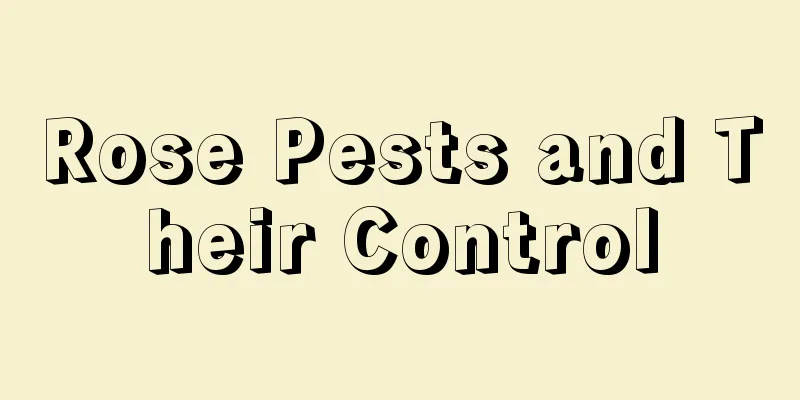Rose Pests and Their Control

Rose spider mites and their controlSpider mites are also called red spiders. There are two main types of spider mites that harm roses: one is the cinnabar spider mite, which is red in color, and the other is the two-spotted spider mite, which is yellow to yellow-green in color. Generally, spider mites will parasitize on the back of the leaves and suck the juice, while many tiny yellow-white spots will appear on the front of the leaves, and then the leaves will gradually turn yellow and finally fall off. In severe cases, the entire buds and branches will be full of spider mites. Lime sulfur mixture can be sprayed evenly during the insect stinging period, and avermectin, cypermethrin, and cypermethrin can be sprayed in the early stage of the outbreak. Rose aphids and their controlAphids will gather on the buds, young leaves and flower buds of roses to suck their sap. In severe cases, there will be black secretions like honey oil, which will affect the quality of the flowers and the growth of roses. When aphids lay eggs and hibernate in autumn and winter, imidacloprid and avermectin can be used alternately for prevention and control. Rose thrips and its controlWhen thrips inhabit young leaves, they cause their tips to die, preventing them from growing. If it feeds on the back of the leaves and excretes brown substances, the back of the leaves will become deformed, and grayish-white or grayish-brown stripes will appear on both sides of the midrib, causing the leaves to become deformed and bent. You can spray medicine for treatment, and choose those containing active ingredients such as acetamiprid, thiamethoxam, and thiamethoxam. Rose leaf peak and its prevention and treatmentThe larvae eat away at the leaves of the rose, creating holes. They feed very quickly and in severe cases will eat away all the leaves and even the tender tips. In the early stage of insect pests, you can spray drugs such as phoxim and chlorpyrifos for prevention and control. Rose stem bee and its controlOne generation occurs every year. The larvae lay eggs under the inner epidermis in April and May. After hatching, they drill into the stem and then cut downward in a spiral shape along the cambium to eat their way to the lower part of the branch. When mature, they will create a pupal chamber inside the branch, which is barrel-shaped. An effective control method is to remove diseased branches, pruning down the branches until you find the larvae, which can then be destroyed. The Short-headed Locust of Rose and Its ControlThe short-fronted locust will bite many holes in the leaves. It has two generations a year, laying eggs in the winter and hatching into adults in May or June. You can spray 1000 times diluted 50% carbofuran, which has a high mortality rate and good results. The above is the editor’s summary of rose pests and prevention methods. I hope it can help everyone. |
<<: Pests of White Orchid and Their Control
>>: Common Pests of Crape Myrtle and Their Control Methods
Recommend
When to plant spinach?
Spinach can tolerate lower temperatures and has a...
Where do walnuts grow?
The walnut is covered with a thick green skin. Be...
How to water poppy
Water requirements at different times Generally s...
How to grow mint flowers? Can they be placed in the bedroom?
1. Maintenance methods 1. Watering: When growing ...
The difference between golden amber and cactus
The difference between golden amber ball and cact...
How to grow Peruvian sugar apple
1. Soil When growing Peruvian sugar apple, it is ...
How to grow magnolia on the balcony, what should you pay attention to
1. Can it be grown on the balcony? Although magno...
The causes and treatments of yellow leaves of roses
1. Flower soil reasons 1. Reason: The yellow leav...
When and how to change the soil for strawberries
Time to change the soil for strawberries The best...
How to grow potted lilies
1. Change the pot in time For potted plants, you ...
Are roses easy to grow? Methods and precautions for growing roses at home
Are roses easy to grow? Roses are relatively easy...
What kind of soil is better for growing succulents? How to make your own
1. What kind of soil is better for growing succul...
Can the longevity flower be pruned after September? When can the longevity flower not be pruned?
The growth of Kalanchoe is extremely messy, and i...
How does copper coin grass survive the winter?
1. How to survive the winter in southern China 1....
Do Lithops need root pruning?
Do Lithops need root pruning? Generally, it is be...









